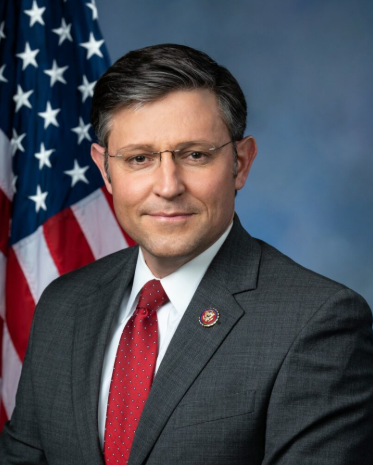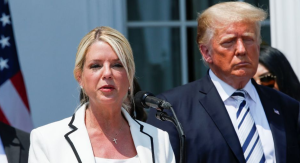Note: VIDEO at the end of the article
House Speaker Mike Johnson (R-LA) delivered a firm but diplomatic rebuttal this weekend to Sen. Rand Paul’s (R-KY) sharp criticism of the House-approved version of former President Donald Trump’s sweeping economic proposal known as the “One Big, Beautiful Bill.” Appearing on Fox News Sunday with host Shannon Bream—just moments after Paul aired his grievances—Johnson took the opportunity to counter the narrative that the bill would dangerously expand the national debt.
Senator Paul, a longtime fiscal hawk, had blasted the bill earlier in the program, calling its spending cuts “wimpy and anemic” and warning that the bill posed a serious national security threat by “exploding” the debt. He also accused congressional Republicans of abandoning their traditional stance on fiscal conservatism for political expediency.
Speaker Johnson, while expressing respect for Paul’s stance, argued that the Kentucky senator’s interpretation of the bill missed key details and failed to account for the bill’s historic scale in terms of spending reductions.
“I agree wholeheartedly with what my dear friend, Rand Paul, said. I love his conviction, and I share it,” Johnson said. “The national debt is … the greatest threat to our national security and deficits are a serious problem.”
“What I think Rand is missing on this one is the fact that we are quite serious about this. This is the biggest spending cut, Shannon, in more than 30 years—we’re going to cut over $1.5 trillion in spending, and it’s a big leap forward.”
“Historic” Cuts or Missed Opportunity?
Johnson emphasized that the bill represents the most significant rollback of federal spending in decades—surpassing even the landmark budget deals of the 1990s. “The last time we had a spending cut was three decades ago, and it was only $800 billion, even adjusted for inflation,” he said. “This is the biggest spending cut, I think, in the history of government on planet Earth.”
Still, Johnson admitted the legislation wouldn’t solve all of America’s financial woes overnight. Instead, he described it as the beginning of a long-term shift in federal fiscal policy, comparing it to the challenge of steering a massive military vessel.
“I liken this to an aircraft carrier. You don’t turn an aircraft carrier on a dime. It takes a mile of open ocean. And so, it took us decades to get into this situation. This is a big step to begin to turn that aircraft carrier.”
Debt Ceiling Debate Looms Large
One of the central flashpoints in Paul’s criticism—and a primary concern for several other Republicans—is the bill’s provision to extend the federal debt ceiling. Johnson confirmed that the package includes a provision to raise the ceiling, but he insisted that doing so does not amount to authorizing new spending.
“It sounds like [Paul’s] biggest objection is the fact that we are extending the debt ceiling,” Johnson said. “That’s a critically important thing to do. We have to do it. We’re not going to get any Democrats to assist on that.”
He continued, explaining that raising the ceiling was necessary to avoid default, keep financial markets stable, and send a message of seriousness to global creditors.
“To get it through the Senate and make sure we don’t crash the U.S. economy and default on our debts for the first time in history, it has to be part of the reconciliation package.”
“It does not mean that we’re going to spend more money. We’re extending the debt ceiling to show to creditors, the bond markets, the stock market, that the Congress is serious about this.”
Trump’s Influence: Present and Powerful
Johnson also emphasized that former President Trump remains deeply involved in the process and shares many of the same concerns about federal overspending.
“President Trump is dialed in 100%. He is a visionary leader. He does not want to spend more money. And he has the same concern about the national debt that Rand Paul and I do,” Johnson said. “That’s why we’re not going to be spending to that level.”
Trump’s fingerprints are clearly visible in the bill’s tax reforms and spending priorities. Among its provisions are extensions of the 2017 tax cuts, elimination of federal taxes on service industry tips, and scaled-back spending on federal entitlement programs. Critics argue that these measures disproportionately benefit wealthier Americans and could put added pressure on working-class families if inflation continues.
Divided GOP Reactions
Despite Johnson’s assurances, there is growing tension within the Republican Party over the long-term impact of the bill. Some GOP lawmakers, especially Senate conservatives, have echoed Paul’s alarm over the debt ceiling and the magnitude of the national debt—now surpassing $35 trillion.
Sen. Mike Lee (R-UT) and Sen. Ron Johnson (R-WI) have both hinted at opposition to the bill in its current form, calling for greater fiscal restraint and more aggressive caps on federal discretionary spending.
Meanwhile, House Republicans have mostly rallied around the Speaker and former President Trump, arguing that the bill is a compromise between economic pragmatism and ideological commitment.
Rep. Elise Stefanik (R-NY), the House Republican Conference Chair, called it “a bold vision to restore American prosperity.” Rep. Jim Jordan (R-OH) described it as “a necessary reset after years of Democrat mismanagement.”
Looking Ahead: A Battle in the Senate
The bill’s future is now in the hands of the Senate, where Democrats are expected to unanimously oppose it, and Republicans will need to remain united to push it through. With a narrow GOP majority, even a handful of dissenters could derail the legislation.
For now, Johnson appears confident that the Senate will ultimately fall in line.
“This is the start of a new fiscal era,” he said. “We know the path won’t be easy. But we’re committed to changing the trajectory of government spending, starting now.”
As the national debt continues to mount and economic uncertainty looms ahead of the 2024 presidential election, the “One Big, Beautiful Bill” may become a defining moment—not just for Trump’s political legacy, but for the Republican Party’s identity as the party of fiscal responsibility.
Whether that identity remains intact will depend on how the Senate responds—and how the American people judge the price of balancing pragmatism with principle.
https://www.youtube.com/watch?v=sr9NXt9-CZE









